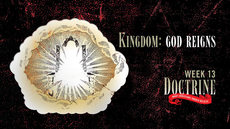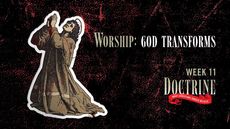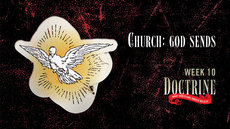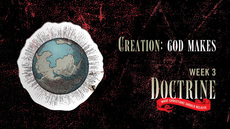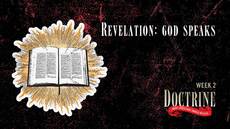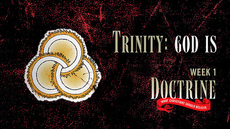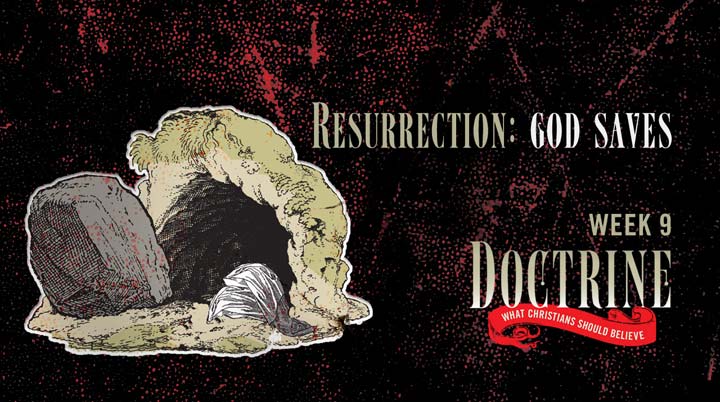
This article is a summary of the content from my sermon on the bodily resurrection of Jesus Christ from death as part of the Doctrine: What Christians should believe preaching series. Much of the content of this chapter is from Chapter (Did Jesus rise from death?) of the book Dr. Gerry Breshears and I wrote together called Vintage Jesus: Timeless Answers to Timely Questions. I will quote it throughout this book to both serve you and whet your appetite to purchase the entire book for yourself at Amazon.
To begin with, the importance of this issue can hardly be overstated. Paul himself said as much declaring in 1 Corinthians 15:17 "And if Christ has not been raised, your faith is futile and you are still in your sins." Simply, apart from the resurrection of Jesus Christ there is no savior, no salvation, no forgiveness of sin, no hope of resurrected eternal life, and Jesus is reduced to yet another good but dead and therefore of no considerable help to us in this life or at its end. Plainly stated, without the resurrection of Jesus the few billion people who worship Jesus today as God are fools and their hope for a resurrection life after this life ends is the hope of silly fools. Thankfully, there is good warrant to believe in the resurrection of Jesus Christ from death which I now share with you in hope that your faith would be in the fact of the triumph of Jesus over Satan, sin, and death.
What is resurrection?
In his impressive 700 page tome The Resurrection of the Son of God, notable New Testament scholar N.T. Wright provides a most helpful definition of resurrection which he repeats throughout the book as one of his main points. A researcher who summarized the book provided me the following:
Wright proposes that in the first century "resurrection" did not mean "life after death" in the sense of "the life that follows immediately after bodily death." (page 31) According to Wright, "Here there is no difference between pagans, Jews and Christians. They all understood the Greek word anastasis and its cognates, and the other related terms we shall meet, to mean… new life after a period of being dead. Pagans denied this possibility; some Jews affirmed it as a long-term future hope; virtually all Christians claimed that is had happened to Jesus and would happen to them in the future." (page 31) In other words, "resurrection" was a way of "speaking of a new life after ‘life after death’ in the popular sense, a fresh living embodiment following a period of death-as-a-state." (page 31)
According to Wright, the meaning of resurrection as "life after ‘life after death’" cannot be overemphasized. This is due in large part because much modern writing continues to use "resurrection" as a synonym for "life after death." Belief in "resurrection" meant belief in what Wright calls a "two-step story." Resurrection itself is preceded by an interim period of death-as-a-state. "Where we find a single-step story – death-as-event being followed at once by a final state, for instance of disembodied bliss – the texts are not talking about resurrection. Resurrection involves a definite content (some sort of re-embodiment) and a definite narrative shape (a two-step story, not a single-step one). This meaning is constant throughout the ancient world." (page 31)
What is the biblical evidence for Jesus resurrection?
The following is summarized from Vintage Jesus chapter 7:
-
Jesus’ resurrection was prophesied in advance.
Isa. 53:8–12 -
Jesus predicted his resurrection.
Matt. 12:38–40; Mark 8:31; 9:31; 10:33–34; John 2:18–22 -
Jesus died on the cross.
Matt. 27:45-54; Mark 15:33-39; Luke 23:44-48; John 19:28-42 -
Jesus was buried in a tomb that was easy to find.
Matt. 27:57–60 -
Jesus appeared physically alive three days after his death.
John 20:17; John 20:20–28; Luke 24:36–43 -
Jesus’ resurrection was recorded as Scripture shortly after it occurred.
1 Cor. 15:3–4 -
Jesus’ resurrection convinced his family to worship him as God.
Acts 1:14; 12:17; 15:12–21; 21:18; 1 Cor. 15:7, Gal. 2:9; Jm. 1:1; Jude 1 -
Jesus’ resurrection was confirmed by his most bitter enemies, like Paul.
Acts 7:54–60; Acts 9; Phil. 3:4–6
What is the circumstantial evidence for Jesus resurrection?
The following is summarized from the book Vintage Jesus chapter 7 where the big ideas are explored in detail:
- The transformation of the disciples from cowards to men that no longer feared death and died as martyrs.
- The disciples stayed loyal to their Messiah in the face of great suffering and persecution.
- The character of the disciples negates the prospect that they lied about the resurrection.
- The day of worship changed from Saturday to Sunday in honor of Jesus resurrection and in contrast to thousands of years of observance according to one of the 10 Commandments.
- The object of worship became Jesus as God.
- Theological changes in the church included the sacraments of communion and baptism in honor of Jesus death and resurrection.
- Women discovered the empty tomb according to the Scriptures and if the story were fabricated they would not have been included since they could not legally testify as witnesses.
- Early church preaching continually emphasized the fact of Jesus resurrection as the central truth of Christian faith.
- The tomb of was not enshrined like so many religious leaders in that day for the simple fact he was not there but rather risen.
- Growth of the church can only be explained by the fact of the resurrection of Jesus as its cause.
What is the historical evidence for Jesus resurrection?
Thomas Arnold (professor of Modern History at Oxford): "No one fact in the history of mankind . . . is proved by better and fuller evidence of every sort" than the fact that "Christ died and rose from the dead."
The following is quoted from the book Vintage Jesus chapter 7:
-
Josephus (AD 37–100)
Josephus was a Jewish historian born just a few years after Jesus died. His most celebrated passage, called the "Testimonium Flavianum" says:Now there was about this time Jesus, a wise man, if it be lawful to call him a man; for he was a doer of wonderful works, a teacher of such men as receive the truth with pleasure. He drew over to him both many of the Jews and many of the Gentiles. He was [the] Christ. And when Pilate, at the suggestion of the principal men among us, had condemned him to the cross, those that loved him at the first did not forsake him; for he appeared to them alive again the third day, as the divine prophets had foretold these and ten thousand other wonderful things concerning him. And the tribe of Christians, so named from him, are not extinct at this day. (Flavius Josephus, "Jewish Antiquities" in
Suetonius was a Roman historian and annalist of the Imperial House. In his biography of Nero (Nero ruled AD 54–68), Suetonius mentions the persecution of Christians by indirectly referring to the resurrection: "Punishment was inflicted on the Christians, a class of men given to a new and mischievous superstition [the resurrection]."(Suetonius Vita Nero 16.11–13)
Pliny the Younger wrote a letter to the emperor Trajan around 111 describing early Christian worship gatherings that met early on Sunday mornings in memory of Jesus’ resurrection day:
I have never been present at an examination of Christians. Consequently, I do not know the nature of the extent of the punishments usually meted out to them, nor the grounds for starting an investigation and how far it should be pressed. . . . They also declared that the sum total of their guilt or error amounted to no more than this: they had met regularly before dawn on a fixed day [Sunday in remembrance of Jesus’ resurrection] to chant verses alternately amongst themselves in honor of Christ as if to a god . . .(Pliny the Younger Letters 10.96.1–7)
The earliest attempt to provide an alternative explanation for the resurrection of Jesus did not deny that the tomb was empty. (Matt. 28:13–15) Instead, Jewish opponents claimed that the body had been stolen, thus admitting the fact of the empty tomb. But this explanation is untenable for the following reasons. One, the tomb was closed with an enormous rock and sealed by the government, and there is no explanation for how the rock was moved while being guarded by armed Roman soldiers. Two, if the body were stolen, a large ransom could have been offered to the thieves and they could have been coerced to produce the body. Or, if it had been taken by the disciples, then the torture and death they suffered should have been sufficient to return the body. Third, even if the body was stolen, how are we to account for the fact that Jesus appeared to multiple crowds of people, proving that he was alive? In conclusion, the theft of the body is unlikely and still fails to account for it returning back to life.
For further study on the resurrection:
- A brief but good article from Dr. Normal Geisler can be found at: //www.equip.org/site/c.muI1LaMNJrE/b.2548567/k.FFA4/I_Believe_In_The_Resurrection_of_the_Flesh.htm
- A very helpful and lengthy article from N.T. Wright can be found at: //www.ntwrightpage.com/Wright_Jesus_Resurrection.htm
- A thorough book by a solid evangelical apologist is The Case for the Resurrection of Jesus by Gary R. Habermas and Michael R. Licona
- And, ambitious book readers will enjoy, N.T. Wright, The Resurrection of the Son of God by N.T. Wright

